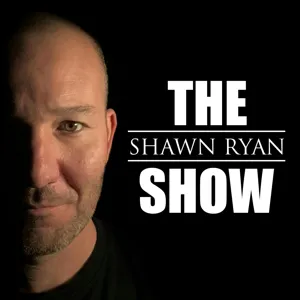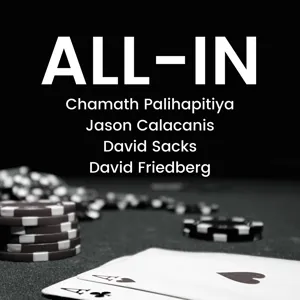Please note: excerpts in the bullet list below are taken verbatim from the 2019 report
This week I am happy to share my conversation with Jennifer Skene, international law fellow with NRDC and lead author of The Issue with Tissue Report that details the destruction of the boreal forest as a result of clear-cut logging.
The boreal forest is a precious forest ecosystem that lies just below the Arctic Circle. It spans 1.9 billion hectares and represents 14% of Earth’s land, stretching across Alaska, Canada, Scandinavia, Russia, and China, crowning the earth in a ring of green. It is home to hundreds of species numbering in billions of lives, including the iconic . It is home to more than 600 First Nations, Inuit and Métis communities whose traditional territories are in the boreal.
It is being fast destroyed by American and Canadian logging companies.
In our conversation, we discuss the U.S. tissue market — which generates $31 billion in revenue every year, second only to China — and the report published by the Natural Resources Defense Council (NRDC) titled “The Issue with Tissue.” (The report was updated this year and can be found here: The Issue with Tissue 2.0.)
This in-depth report presents the environmental atrocities being committed by huge U.S. and Canadian corporation in Canada — Proctor & Gamble, Kimberly-Clark, and Georgia-Pacific, among others — and details the broad destruction that is underway right now with the tacit approval of the Canadian Government. It also offers us a great way out of being complicit in that destruction with its handy BUYER’S GUIDE TO THE SUSTAINABILITY OF AT-HOME TISSUE PRODUCTS (See page 15 of the Report.)
Here are some disturbing highlights from the report:
- The United States consumes more toilet paper than any other country, using a whopping 9.2 billion pounds of it each year—about 28 pounds per person.
- Americans, who make up just over 4 percent of the world’s population, account for over 20 percent of global tissue consumption.
- The three companies with the largest market shares in the tissue sector, Procter & Gamble, Kimberly-Clark, and Georgia-Pacific, still rely almost exclusively on virgin pulp for their at-home tissue brands.
- Much of the tissue pulp in the United States comes from the boreal forest of Canada, which is home to over 600 Indigenous communities.
- Industrial logging claims more than a million acres of boreal forest every year, equivalent to seven National Hockey League rinks each minute, in part to meet demand for tissue products in the United States.
- Between 1996 and 2015, more than 28 million acres of boreal forest were logged, an area roughly the size of Ohio. More than 90 percent of this logging was done by clearcutting, which removes nearly all trees from an area.
- These clearcut forests can take more than a century to return to their pre-logging condition, and some never do.
- Major brands such as Charmin, Cottonelle, and Angel Soft are made entirely from 100% virgin fiber.
Here is why we must stop the destruction of this absolutely amazing region:
- The global boreal is especially vital to worldwide efforts to fight climate change since it stores more carbon per hectare than any other forest biome on earth and holds more carbon than all the currently accessible oil, gas, and coal reserves combined.
- It is an essential nesting ground for billions of migratory birds that populate the skies of North America.
- Yet, for all forests’ value, we are quite literally flushing them down the toilet.
SOLUTIONS EXIST
Fortunately, solutions promoting healthy forests and a healthy planet already exist. Companies and consumers simply need to embrace them.
- Instead of relying on virgin pulp, tissue companies can use recycled content or sustainably sourced alternative fibers such as wheat straw and bamboo. Use of these materials to create tissue can dramatically reduce our destructive impact on the boreal and other forests around the world.
- Because agricultural residue is often burned if not put to alternative use, using agricultural residue in tissue is additionally beneficial because it prevents this residue emitting carbon dioxide and other harmful air pollutants.
- Producers should look for bamboo that is certified by the Forest Stewardship Council (FSC) to ensure it is sustainably sourced and indicate that certification on their products.”
SHOW RESOURCES
The Issue With Tissue 2.0 report
BUYER’S GUIDE TO THE SUSTAINABILITY OF AT-HOME TISSUE PRODUCTS – Page 15 from the NRDC Report
Natural Resources Defense Council (NRDC) website
ABOUT Jennifer Skene, NRDC, author of The Issue with Tissue
ABOUT Shelley Vinyard, NRDC, author of The Issue with Tissue
Canada Invests in the Future of Intact Boreal Forests, NRDC Blogpost, August 20, 2019 by Jennifer Skene
The Indigenous Guardians Program from the Indigenous Leadership Initiative
Also see The Boreal Forest project at davidsuzuki.org
Audible Café theme music by Brian Eddy
You also heard “Raining Trees” by Tiokasin Ghosthorse, producer and host of First Voices Indigenous Radio
The bird calls you heard in this episode were recorded from the Boreal Songbird Initiative, dedicated to education and outreach about the importance of the boreal forest to North America’s birds, other wildlife, and the global environment.






